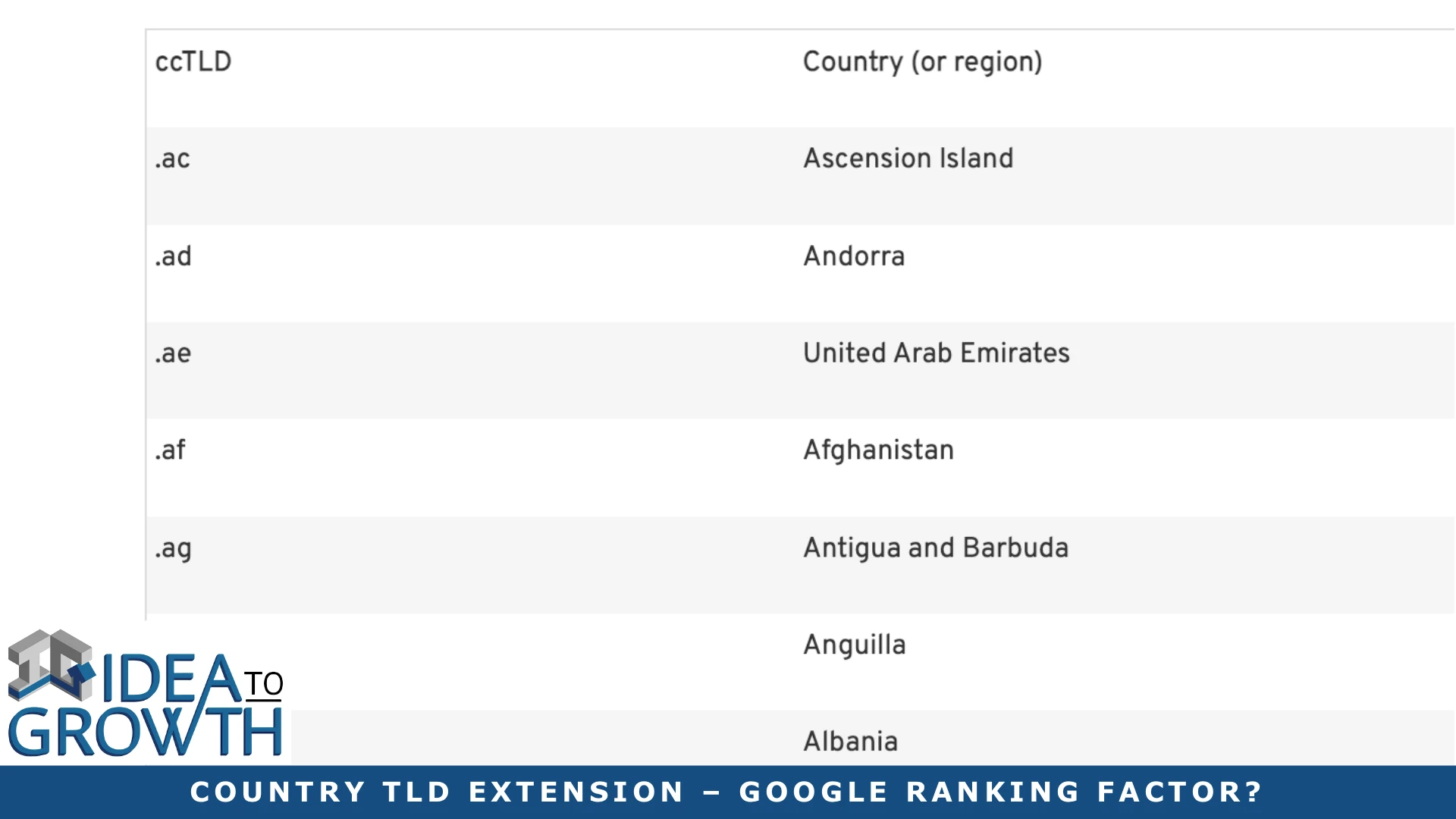COUNTRY TLD EXTENSION – 1 BIG GOOGLE RANKING FACTOR?

COUNTRY TLD EXTENSION – 1 BIG GOOGLE RANKING FACTOR?
Demystifying the Influence of Country TLD Extensions on Google Ranking
Introduction:
Imagine this scenario: John, a passionate entrepreneur, is launching an e-commerce website to sell handmade artisanal goods. As he navigates the domain registration process, John wonders if choosing a country-specific top-level domain (TLD) extension, such as .us or .uk, could impact his website’s visibility on Google. Like John, many website owners and SEO experts are curious about whether the country TLD extension plays a role in Google ranking.
For website owners and SEO experts, understanding the nuances of Google’s ranking algorithm is crucial for optimizing online visibility and driving organic traffic. In this article, we delve into the question of whether the country TLD extension influences Google ranking, examining studies and data to uncover the truth behind this debated topic.
Understanding Country TLD Extensions:
Before exploring the potential impact of country TLD extensions on Google ranking, let’s first define what these extensions represent. A TLD extension is the last segment of a domain name, such as “*.com, *.org, or *.net.” Country-specific TLD extensions, also known as country-code top-level domains (ccTLDs), are assigned to specific countries or territories. For example,.us is associated with the United States,.uk with the United Kingdom, and.de with Germany.
The Debate: Does Country TLD Extension Affect Google Ranking?
The debate surrounding the influence of country TLD extensions on Google ranking revolves around whether Google’s algorithm considers the geographic association of a domain when determining its relevance and authority for search queries. Proponents of this theory argue that country TLD extensions signal the geographical relevance of a website, potentially influencing its ranking for local search queries within that country.
On the other hand, opponents of this theory assert that Google’s ranking algorithm prioritizes elements like backlink profile, relevance, and high-quality content over the TLD extension of the domain. They argue that while country TLD extensions may indicate geographic targeting, they are not the sole determinant of a website’s relevance or authority for search queries.
Examining the Evidence:
To determine if the country TLD extension impacts Google ranking, let’s examine some studies and data on the subject:
1. A Moz study examined the relationship between national top-level domain extensions and search engine results for geo-specific queries. The study found a moderate correlation between country TLD extensions and ranking for local search queries, suggesting that domain geotargeting may play a role in Google’s algorithm.
2. Another study published in the Search Engine Journal examined the ranking performance of websites with country TLD extensions compared to generic TLD extensions (e.g.,.com,.net). The findings revealed that while country TLD extensions may provide a slight advantage for local search queries, other factors such as content quality and backlink profile have a more significant impact on ranking.
3. Google’s official statements on ranking factors do not explicitly mention country TLD extensions as a primary determinant of search engine ranking. Instead, Google emphasizes the importance of relevance, quality content, and user experience in determining search rankings.
Conclusion:
In conclusion, the evidence suggests that while country TLD extensions may have some influence on Google ranking, they are not the sole determinant of a website’s visibility in search results. While choosing a country-specific TLD extension may signal geographic targeting and potentially improve visibility for local search queries, other factors such as content quality, relevance, and backlink profile play a more significant role in Google’s ranking algorithm.
So, for website owners and SEO experts like John, focusing on creating high-quality, relevant content tailored to their target audience remains paramount for achieving success in Google search results.
But as the digital landscape continues to evolve, could Google’s approach to evaluating country TLD extensions change in the future? Only time will tell.
What are your thoughts on the influence of country TLD extensions on Google ranking?
100% FREE GOOGLE PAGE RANK ANALYSIS
I want to prove my value to “Helping You Grow Your Business Stronger!” by offering a 100% free Google SEO pagerank analysis. Could you share your homepage URL (domain name) and the email to which I should send your 100% free report? Within a day or two, I’ll point out the top items on your business website that cost you customers.
QUESTIONS?
If you’re ready for an F2F Zoom chat or want to ask a quick question by email, click the appropriate link below.
Regards,
Kenneth Ervin Young, CEO
Idea To Growth LLC
Digital Marketing and Website Agency































